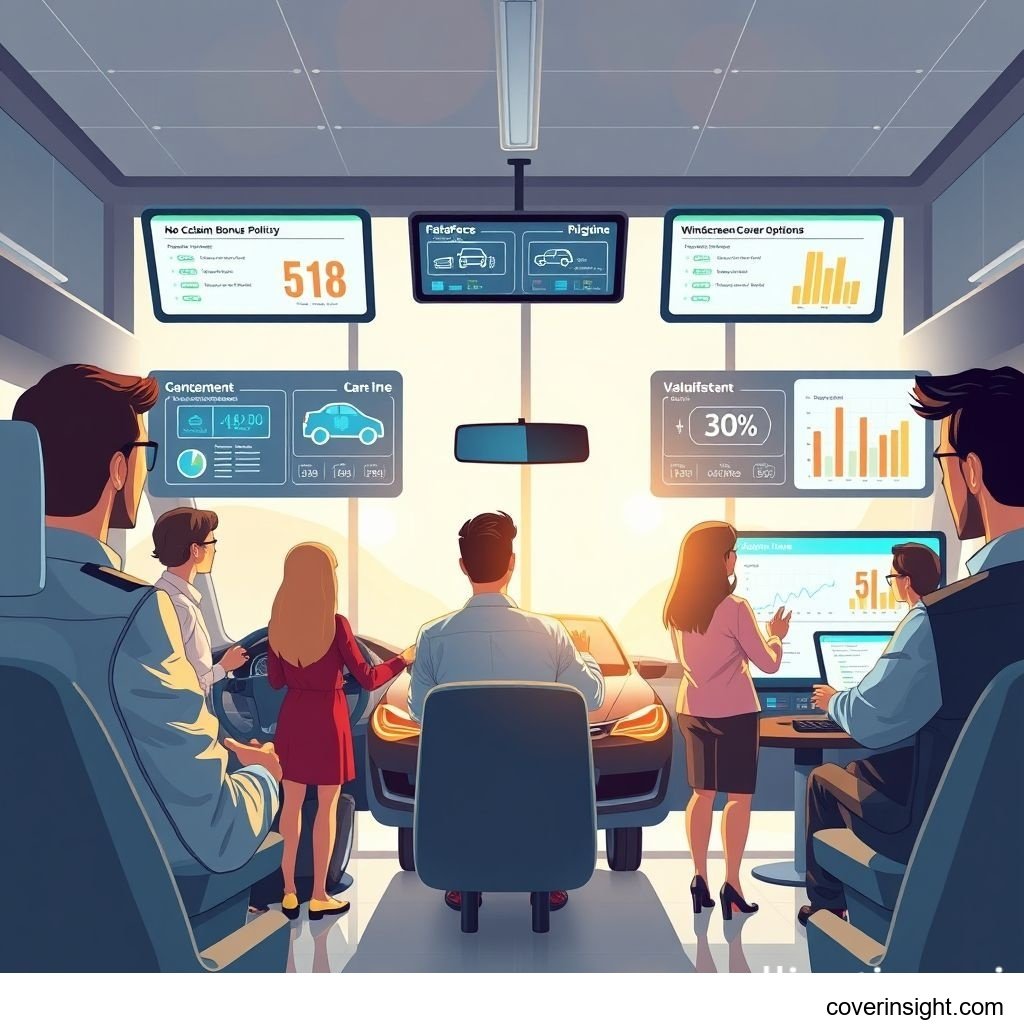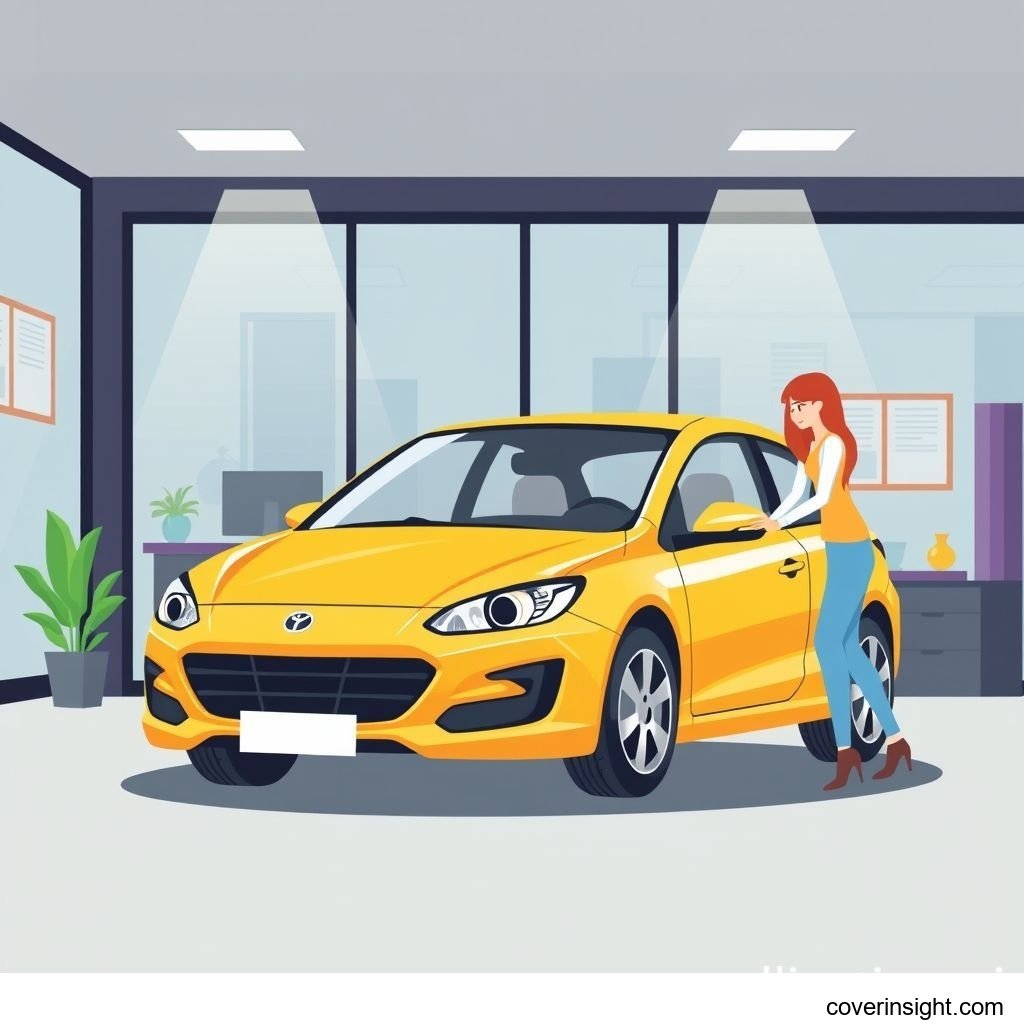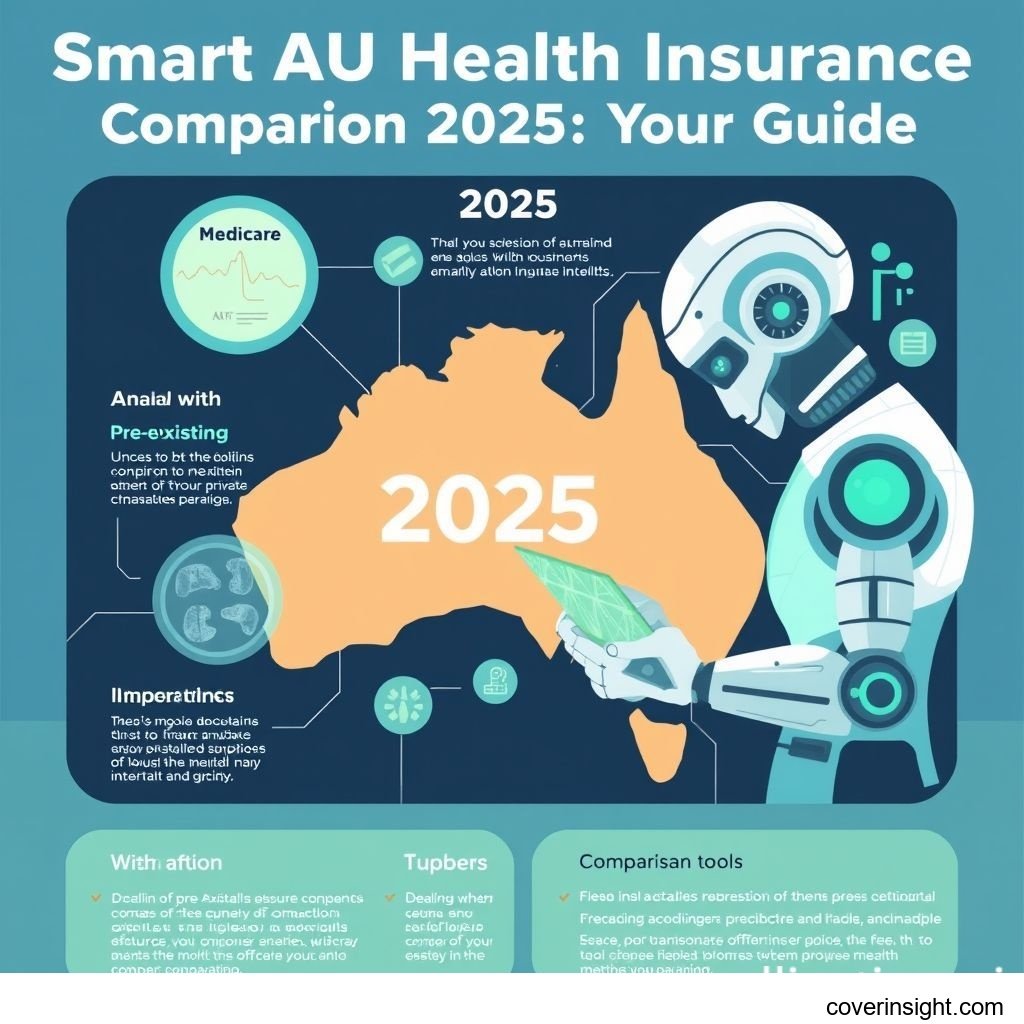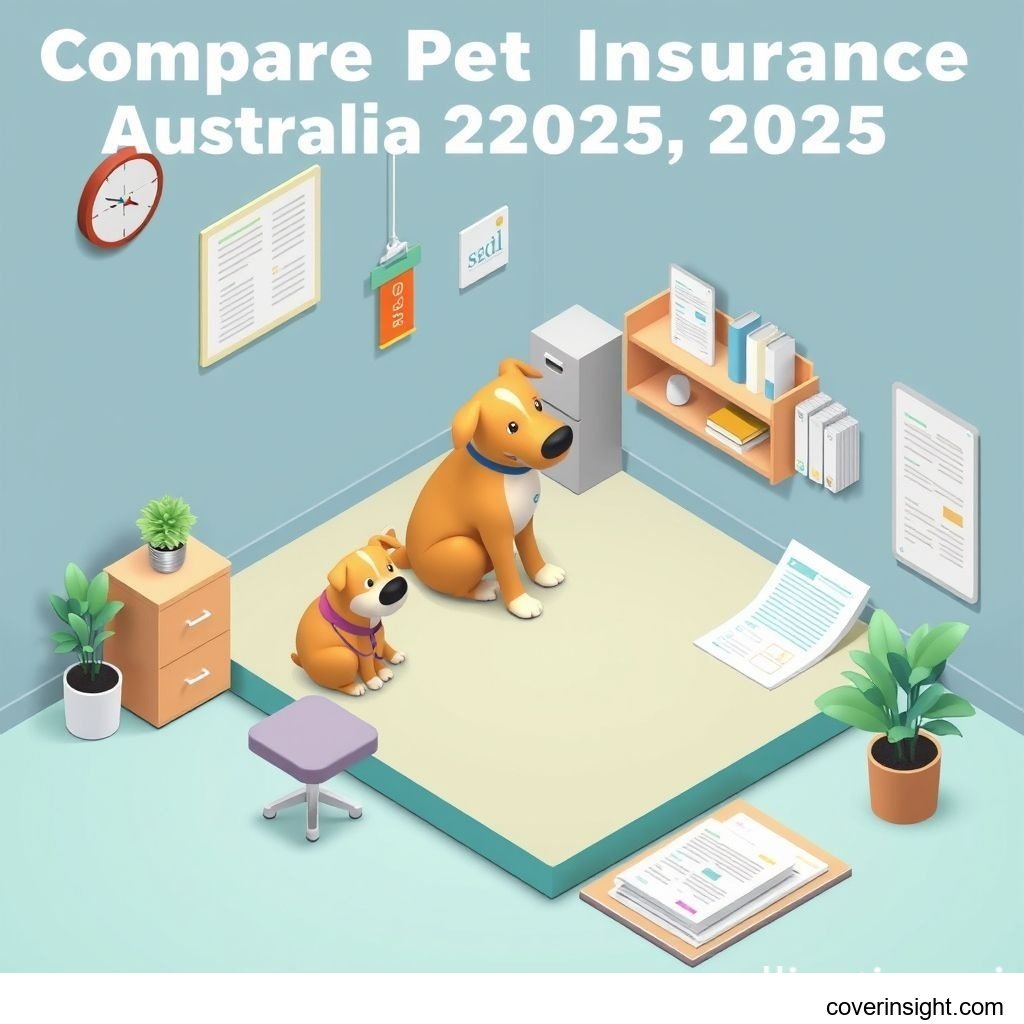Smart AU Car Insurance 2025: Get Your Best Quote!
Introduction
In the dynamic landscape of 2025, securing good auto insurance in Australia is more crucial than ever. With evolving technologies, new vehicle models, and changing road conditions, having the right protection isn't just a legal requirement for some aspects; it's a financial safeguard and a source of peace of mind. As we navigate the complexities of modern life, understanding what constitutes good auto insurance becomes paramount for every driver. This comprehensive guide will walk you through the essential aspects of car insurance in AU, helping you to compare options, understand costs, and ultimately get your best quote for robust coverage.
Understanding Good Auto Insurance Coverage
Deciphering the various levels of car insurance can be daunting, but understanding them is key to obtaining good auto insurance that truly meets your needs. In Australia, car insurance typically falls into three main categories: Compulsory Third Party (CTP), Third Party Property, and Comprehensive.
What’s Included
-
Compulsory Third Party (CTP) Insurance: Often referred to as Green Slip in NSW, this is a mandatory insurance that covers personal injury or death caused to other people if you are at-fault in an accident. It does not cover damage to vehicles or property.
-
Third Party Property Insurance: This cover protects you against the cost of damage you cause to other people's property (like their car, fence, or home) in an accident. It doesn't cover damage to your own vehicle.
-
Comprehensive Car Insurance: This is the highest level of cover, providing the most extensive protection. It typically includes:
-
Damage to your own vehicle, regardless of fault.
-
Damage to other people's property.
-
Theft or attempted theft of your vehicle.
-
Fire damage to your vehicle.
-
Malicious damage or vandalism.
-
Storm, flood, or hail damage.
-
New vehicle replacement (for eligible new cars).
-
Towing and storage costs after an incident.
-
The crucial aspect of comprehensive cover is its robust at-fault accident coverage, ensuring you're protected financially even when you're deemed responsible for a collision. This type of insurance is generally considered the benchmark for good auto insurance due to its extensive benefits.
-
Common Exclusions
Even the most thorough good auto insurance policies come with exclusions. Understanding these is vital to avoid unexpected denials of claims. Common exclusions include:
-
Unlicensed Driving: Accidents occurring when the driver is not licensed, or is driving outside the conditions of their license.
-
Driving Under the Influence: Accidents while the driver is under the influence of alcohol or drugs.
-
Racing or Illegal Activities: Damage incurred during racing, speed trials, or other illegal activities.
-
Unapproved Modifications: Damage to modifications made to your vehicle that were not declared or approved by the insurer.
-
Wear and Tear: Mechanical or electrical breakdown, rust, corrosion, or general depreciation of the vehicle.
-
Unsafe Vehicle: Driving a vehicle that is unroadworthy or has known defects that contribute to the accident.
-
Undisclosed Information: Any information that was required but not disclosed truthfully to the insurer when taking out the policy.
The Cost of Good Auto Insurance: Analysis & Savings
The price of good auto insurance can vary significantly, reflecting a multitude of factors unique to you, your vehicle, and your location. Understanding these elements can empower you to make informed decisions and potentially reduce your premiums without compromising on essential coverage.
Price Factors
Insurers assess risk based on various data points. Key factors influencing your car insurance premium include:
-
Driver Demographics: Your age, gender, driving history (including past claims or infringements), and years of driving experience play a significant role. Younger, less experienced drivers often face higher premiums.
-
Vehicle Type: The make, model, age, safety features, and market value of your car directly impact the cost. More expensive, high-performance, or luxury vehicles typically cost more to insure.
-
Location: Where you live and park your car influences risk. Areas with higher theft rates, vandalism, or accident statistics can result in higher premiums for good auto insurance.
-
Vehicle Usage: How you use your car (e.g., private use, business use, daily commute length) affects your premium. Low-mileage drivers might qualify for discounts.
-
Excess Amount: The voluntary excess you choose to pay in the event of a claim. A higher excess typically leads to a lower premium, but means more out-of-pocket expenses when you claim.
-
Coverage Level: As discussed, comprehensive policies are more expensive than third-party options due to their broader protection, including extensive at-fault accident coverage.
-
No Claim Bonus (NCB): A discount applied to your premium for each consecutive year you don't make a claim. This is a significant factor in reducing costs over time.
Saving Tips
While you can't control all price factors, several strategies can help you secure more affordable good auto insurance:
-
Compare Quotes Extensively: Don't settle for the first quote. Use comparison websites and contact multiple insurers directly to ensure you're getting the best deal. Looking at various providers, from major players to smaller niche insurers, can yield surprising savings. For broader insights, you might also explore general Insurance Resources Global.
-
Increase Your Voluntary Excess: If you're comfortable paying a larger sum if you need to claim, opting for a higher excess can significantly lower your regular premium payments.
-
Bundle Policies: Many insurers offer discounts if you combine multiple policies, such as car, home, or contents insurance, with the same provider.
-
Maintain a Clean Driving Record: Avoiding accidents and traffic infringements is the most effective long-term strategy for lower premiums. A strong driving history can significantly reduce the cost of your good auto insurance.
-
Look for Discounts: Inquire about specific discounts for low mileage, secure overnight parking, multi-car policies, or even a good credit score.
-
Consider No Claim Bonus Protection: For a small additional premium, some policies allow you to protect your No Claim Bonus even after your first at-fault claim, ensuring your loyalty discount isn't wiped out immediately. This is a valuable addition to ensure continuous savings on your good auto insurance.
-
Pay Annually: If possible, pay your premium annually rather than monthly or fortnightly. Many insurers charge administrative fees for installment payments, making annual payments cheaper overall.
-
Review Your Policy Annually: Your insurance needs and circumstances change. Review your policy each year to ensure it still fits your requirements and to check for better deals. You can often find updated information and opportunities on an AU Insurance Home page.
Choosing the Right Provider for Good Auto Insurance
Selecting the right car insurance provider is as important as choosing the right policy. It's about finding a balance between cost, coverage, and reliable customer service. For many, good auto insurance isn't just about the policy terms, but also about the ease and efficiency of dealing with the insurer.
Researching Insurers
Before committing to a policy, delve into the insurer's background:
-
Reputation and Reviews: Check online reviews, consumer watchdog reports, and independent ratings. A company with a strong reputation for fair claims handling and good customer service is invaluable.
-
Financial Stability: Ensure the insurer is financially sound and capable of meeting its obligations. Bodies like the Australian Prudential Regulation Authority (APRA) oversee financial institutions, providing a level of assurance.
-
Customer Service: Consider how accessible and helpful their customer support is. Do they offer 24/7 support for claims? Are their online portals user-friendly?
-
Claim Process Efficiency: Research their claims process. A smooth, transparent, and quick claims resolution is critical when you need it most.
Policy Customization
Good auto insurance should be flexible enough to be tailored to your specific needs. Look for providers that offer:
-
Adjustable Sum Insured: The agreed value or market value for your car. Ensure this accurately reflects your vehicle's worth.
-
Optional Add-ons: Consider extras like rental car cover after an accident, roadside assistance, windscreen cover without excess, or cover for personal items in the car. These can significantly enhance your policy's value.
-
Choice of Repairer: Some policies allow you to choose your preferred repairer, while others require you to use their network. This can be important for ensuring quality repairs.
-
Multi-Car Discounts: If you have more than one vehicle, check if they offer discounts for insuring all cars under one policy.
The ability to customize your policy ensures you're not paying for coverage you don't need, while also making sure you have comprehensive protection where it matters most, truly defining what makes good auto insurance for you.
Navigating Claims and the Future of Good Auto Insurance
Understanding the claims process is vital, as this is when your good auto insurance policy truly proves its worth. Furthermore, staying abreast of future trends can help you anticipate how car insurance will evolve.
The Claims Process
-
Immediate Actions After an Accident:
-
Ensure everyone's safety.
-
Exchange details with other parties involved (name, contact, vehicle registration, insurer).
-
Take photos of the accident scene and damage.
-
Do not admit fault at the scene.
-
-
Contact Your Insurer: Notify your insurer as soon as possible after the incident. They will guide you through the process. Be prepared to provide:
-
Policy number.
-
Date, time, and location of the incident.
-
Details of vehicles and people involved.
-
Police report number, if applicable.
-
-
Assessment and Repair: Your insurer will arrange for damage assessment. Depending on your at-fault accident coverage and policy terms, they will either approve repairs, declare the vehicle a total loss (write-off), or reimburse you. If you have no claim bonus protection, ensure you understand how this claim might affect it.
-
Understanding Your Excess: You will usually need to pay your excess when making a claim. If the accident wasn't your fault and the other party is identified and insured, your insurer might recover your excess from their insurer.
Future Trends
The automotive and insurance industries are undergoing significant transformations that will shape the future of good auto insurance:
-
Telematics and Usage-Based Insurance (UBI): Devices or apps that monitor driving behaviour (speed, braking, mileage) are becoming more common. This allows insurers to offer premiums based on actual driving risk, potentially leading to lower costs for safe drivers.
-
Electric Vehicles (EVs): The increasing adoption of EVs presents new considerations. While they often have lower running costs, their unique components and repair methods can influence insurance premiums.
-
Autonomous Vehicles: As self-driving technology advances, questions around liability in accidents will become more complex, potentially shifting responsibility from the driver to the vehicle manufacturer or software provider.
-
Data Analytics and AI: Insurers are leveraging big data and artificial intelligence to refine risk assessment, personalize policies, and streamline the claims process, making good auto insurance more efficient and tailored.
-
Climate Change Impact: The increasing frequency of severe weather events (floods, bushfires, hailstorms) is influencing premiums, particularly for comprehensive policies, as insurers adjust to higher natural disaster risks. The Insurance Council of Australia provides valuable industry insights into these broader trends.
These innovations mean that good auto insurance in the future will likely be more dynamic and personalized, rewarding safer driving and leveraging technology for better protection.
FAQs About Good Auto Insurance in AU
Here are some frequently asked questions to provide quick clarity on common concerns about car insurance in Australia.
How much does good auto insurance cost?
The cost of good auto insurance varies widely. It can range from a few hundred dollars to several thousand per year, depending on factors like your age, driving history, vehicle type, location, and the level of cover chosen. The average comprehensive policy might fall between $1,000 and $2,000 annually, but this is a broad estimate.
What affects premiums?
Premiums are affected by numerous factors including driver age and experience, driving record, vehicle make and model, where the car is garaged, how it's used (private vs. business), the chosen excess, and any selected optional extras like no claim bonus protection.
Is it mandatory?
Yes, Compulsory Third Party (CTP) insurance is mandatory in Australia to register a vehicle, as it covers personal injury to others. However, Third Party Property and Comprehensive insurance are not legally mandatory, though highly recommended for financial protection against damage to vehicles and property.
How to choose?
To choose good auto insurance, assess your budget, your vehicle's value, and your risk tolerance. Compare quotes from multiple insurers, read product disclosure statements (PDS) carefully, check customer reviews, and ensure the policy provides the at-fault accident coverage and other benefits essential for your peace of mind.
Consequences of no coverage?
Driving without mandatory CTP insurance is illegal and can result in significant fines, demerit points, and even vehicle impoundment. Driving without adequate property damage cover (Third Party Property or Comprehensive) leaves you personally liable for potentially massive repair costs if you cause an accident, which could lead to severe financial hardship. Therefore, securing good auto insurance beyond just CTP is a wise investment.








Comments